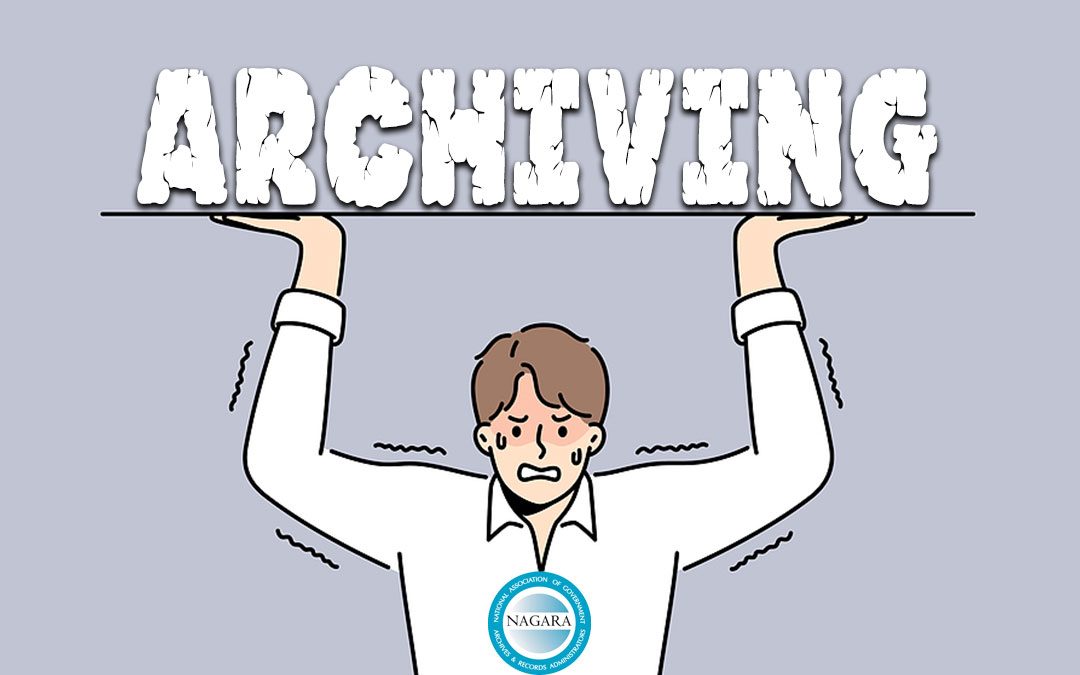Recently, we spent a week in Cincinnati at the 2023 NAGARA Annual Conference (headed up by The National Association of Government Archives and Records Administrators), and we have much to consider as we return to our day-to-day operations at Infotel.
Here are some of our biggest takeaways from NAGARA, and what we will be thinking about going into Q3 this year:
- We’re still reeling from COVID-19. It’s back to business as usual for the most part in the United States, but the effects of the pandemic, from a technology perspective,are still being deeply felt. According to McKinsey, COVID-19 accelerated digital transformation initiatives by years. Globally, the firm reported the pandemic accelerated the adoption of digitization by 7 years, changing the average share of products and/or services that are partially or fully digitized from 35% in December 2019 to 55% in July 2020. In the wake of the pandemic, many industries have seen mass layoffs. Some have come back. Many will never come back. If you were an archiving vendor, however, this trend meant business boomed.
- Being headquartered in France, we see first-hand the challenges US records management professionals face, and we also see the cultural differences between US and European agencies when it comes to handling public data. There are many similarities but clearly, the two geographies handle records management differently which is to be expected as regulations and approaches to data storage are different.
Interesting to note that the European continent has seen the effects of personal data being used for not-so-positive purposes. WWII ravaged a continent, and many people making laws about data privacy and records management were alive to see the atrocities of Nazi Germany who systematically abused private data for their war-driven agenda. The data management laws of the 1990s had these atrocities in mind during the drafting of legislation.
In the US, we were far more removed from these effects and had a different perspective and thus, a different approach to data privacy and management.
- It’s quite clear that Archivists and Records Management Professionals are over-tasked and under-resourced. Headquartered in Washington, DC, NAGARA members are some of the best representatives for having a finger on the pulse of archives, records, and information management at every level of government. Records in many a large government organization were often left to a single individual and the thinking in digital records modernization is similar: “We only need one person managing records.”And in such a large country, with varying regulations by local, state and federal regions for managing records, it is a gargantuan task trying to modernize effectively when civic orgs are rarely staffed sufficiently to accomplish their mission-critical modernization objectives. We heard time and time again how many agencies and organizations announce heavy lifting digitization initiatives yet fail to assign the personnel to do it with. It is a problem that must be managed by good tech systems with effective processes, and this is something we at Infotel know about with our Arvitam™ and deepeo™ Information Management products.
In discussing these topics with our friends and colleagues at NAGARA, it’s clearer than ever that professionals in this industry need organizational support to help them accomplish more with fewer resources.
When it comes to digitization, it’s essential that your software can be flexible enough to handle the differences in geography where the rules/regulations are different to make the lives of its users easier. Infotel’s Arvitam/Arcsys solution is one great option for both commercial and government organizations in need of a solution that can handle large amounts of regulations and data (Arvitam ticks both boxes here).
Arvitam is a modular platform that can run in cluster mode with multi-site architecture and expands to deliver high performance and uninterrupted availability as your business needs evolve. It is not uncommon to ingest and archive billions of records in a large, regulated enterprise without taxing your datacenter’s resources.
Arvitam can run on-premises, in the cloud, or in a hybrid model.
Learn more about how Arvitam is the right solution for you. Please visit our website.

